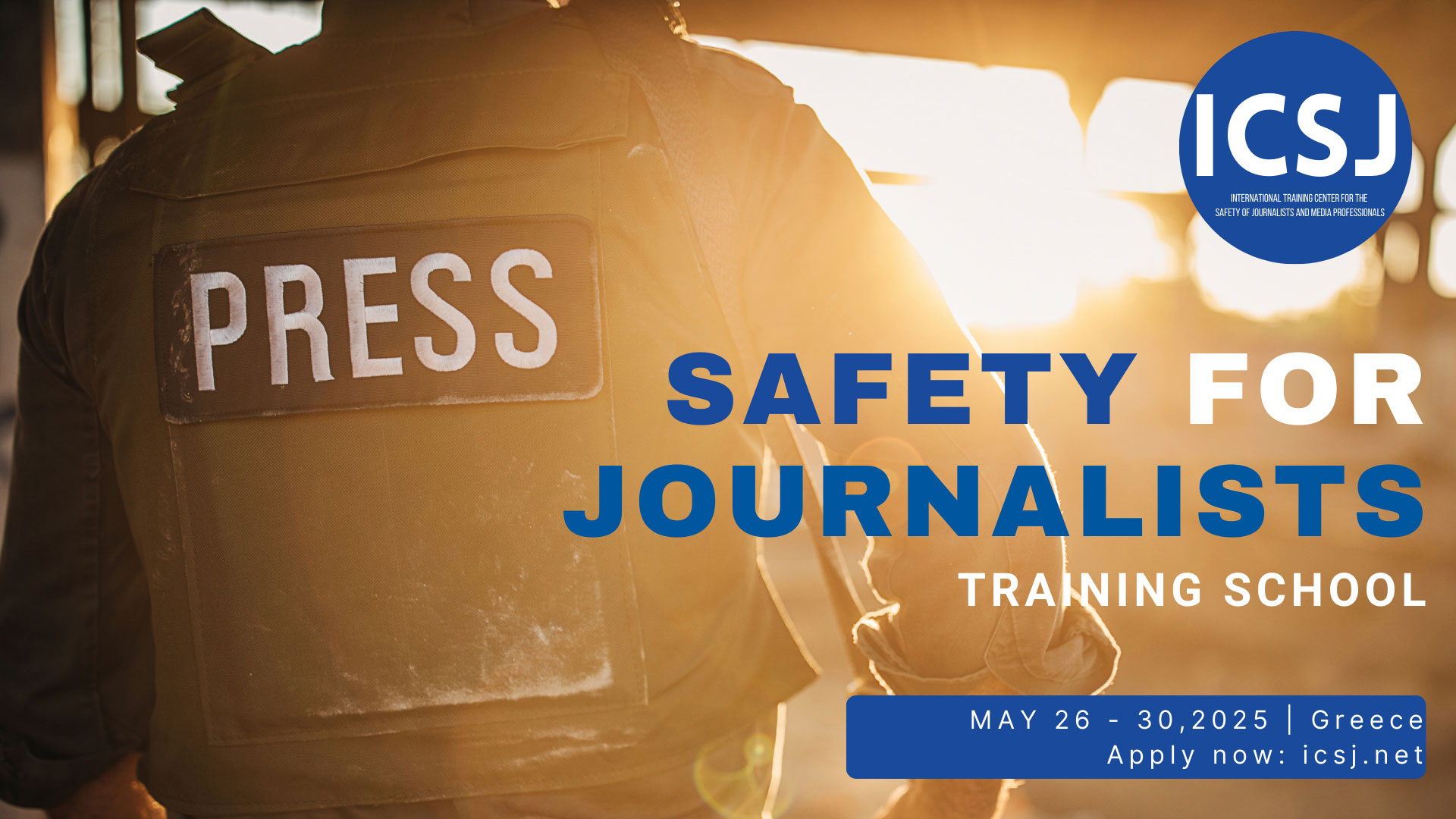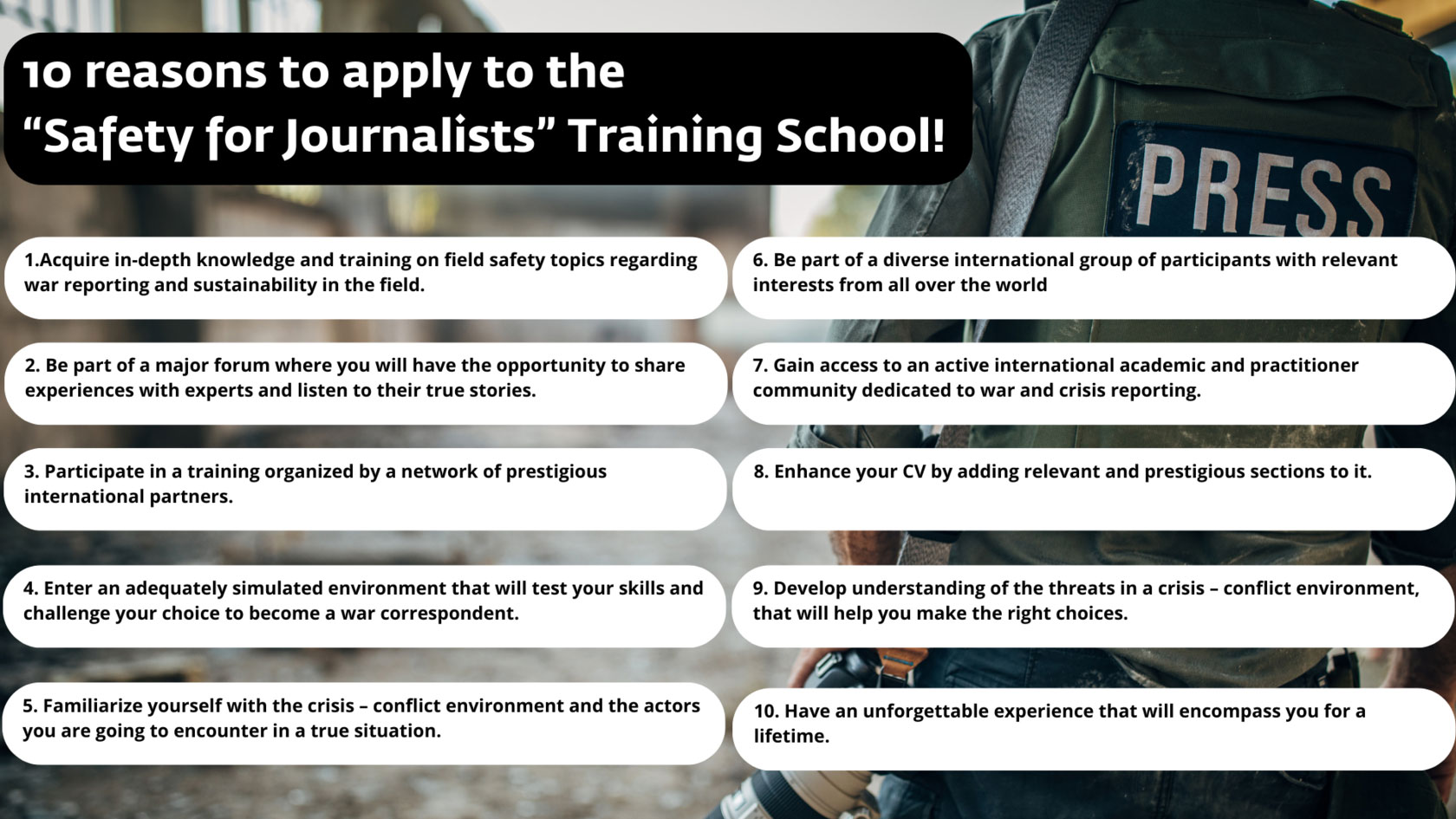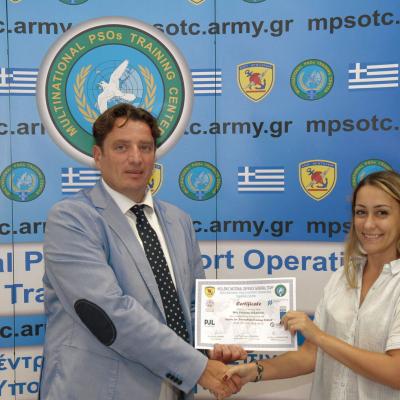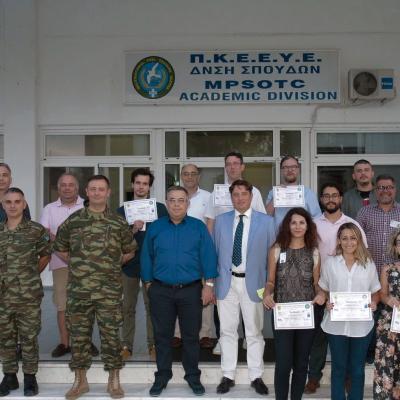
The International Training Centre for the Safety of Journalists and Media Professionals, the Peace Journalism Lab, the School of Journalism and Mass Communications of Aristotle University Thessaloniki, the Jean Monnet Chair for European Public Diplomacy, and the Hellenic Multinational Peace Support Operations Training Center organize the third "Safety for Journalists” Training School, with the support of Secretariat General of Communication and Information, Digital Communication Network Global, Journalists Union of Macedonia and Thrace and Friedrich Newman foundation.
Τhe Safety for Journalists training school is a dynamic, week-long experience that brings together practitioners and experts from around the world. ur increasingly fragmented world, the work of journalists is arguably more dangerous than ever. Training objectives focus on the physical, mental and intellectual preparation of reporters heading into war zones or complex s.
The curriculum has been developed by global leaders in safety training and complements the activities of the new International Training Centre for the Safety of Journalists and Media Professionals in Thessaloniki, Greece. Both the Safety for Journalists Training School and the new International Training Centre are supported by the Peace Journalism Laboratory at Aristotle University of Thessaloniki, where research includes work on international journalism, peace journalism and reporting on united nations sustainable development goals.
Description
War reporters today face a significant number of unprecedented challenges on the field. They find themselves strangling to satisfy basic physical needs and personal security, while at the same time they have to deal with an extremely complicated information environment. The unexpected development of Russian invasion in Ukraine has brought the profession of war correspondent in the foreground once more.
Story
Peace Journalism Lab committed to its values and in the framework of UNAI, has taken the initiative, three years ago, to create an innovative training program for professional and young reporters that are interested in visiting war zones, that has been proven to be really helpful for practitioners. The program, has been suspended due to Covid19 restrictions, but has made a very successful comeback last year. As per our committed and responding to the high demand, it will be available on an annual basis, aiming to provide professionals and young students with all the necessary knowledge to cope with the challenges they are going to face in the contemporary field of conflict.
This training school is a unique opportunity to benefit from the Organizers outstanding experience in war journalism/risk communication combined with the expertise of military professionals. The program is structured around keynote presentations by distinguished experts, roundtable discussions and intensive field training. The course will be run with a mix-method teaching style and includes lectures, discussion, field training, policy lab, and hands-on practicum. Sessions will be led by experts from across communication and military fields.
Who can apply to the “Safety for Journalists” Training Program?
The “Safety for Journalists” Training School aims to select a total number of 35 participants, who have the following background:
Professionals from media and other related organisations, who need a deeper understanding of the issues to be addressed
Ph.D/ Master/ Bachelor students of Journalism, International relations, etc
Join us for 2025 Safety fro Journalists Training School
The participation fee of 1500 Euros covers your accommodation in Kilkis, daily transportation between the town center and the training venue, and all coffee breaks and lunches throughout the program.
Early Bird Discount: Apply by February 28th and pay only 1000 Euros.
Bonus: All trainees will receive complimentary registration to the "From Risk to Resilience: A Multidisciplinary Approach to Global Journalist Safety" Conference in Thessaloniki (May 31st - June 1st, 2025), where you can connect with leading journalists, security experts, and media professionals from around the world and enhance your knowledge of journalist safety.












